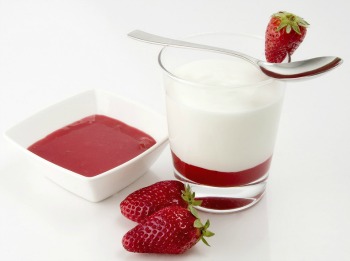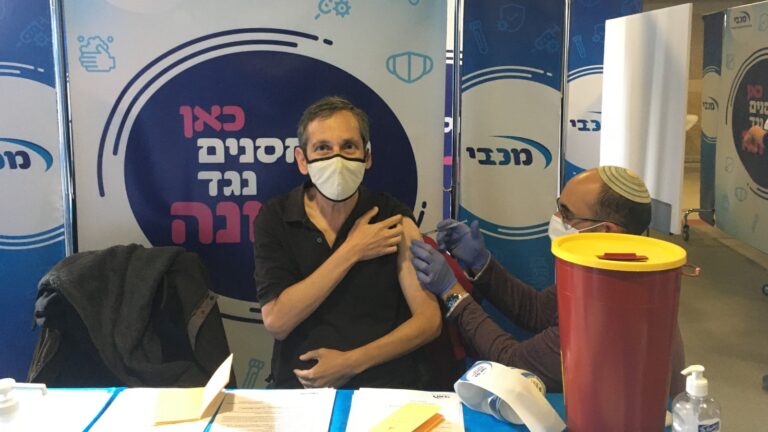Look at any Israeli dining table and the humble tomato is usually there front and center, diced into a cucumber salad or sliced in big wedges drizzled with lemon juice and olive oil.
No one knows fresh tomatoes like the Israelis. It makes sense, then, that the Israeli company LycoRed should corner the market for lycopene, a new super-food and natural dye extracted from the tomato.
Spread the Word
• Email this article to friends or colleagues
• Share this article on Facebook or Twitter
• Write about and link to this article on your blog
• Local relevancy? Send this article to your local press
Lycopene is quickly replacing artificial and animal-based red dyes across America. Health-conscious, vegan, kosher and halal consumers are paying particular attention to this new “green” red dye.
Red food coloring is an attractive way to add a natural tint to milkshakes, red velvet cupcakes, candies and yogurts, but recent evidence on six synthetic dyes, including Red 40, links them to behavioral problems in children. As savvy parents demand better solutions for candies and snack foods, and big retailers such as Starbucks are searching for natural alternatives for their fruit shakes, all eyes are on Israel.
LycoRed has been making natural dyes — from orange to red to red with bluish notes — for about 15 years using carrots or tomatoes. The company recently doubled production of Tomat-O-Red, its antioxidant-rich lycopene compound from non-genetically modified tomatoes grown in California and Israel. Kosher- and halal-certified, it is recognized as safe for consumption by the US Food and Drug Administration (FDA).
Kicking the old red habits
Roee Nir, the company’s color and flavor global commercial manager, tells ISRAEL21c that the “Southamptom Six” — Red 40 and five other petroleum-based synthetic food dyes – were found by Southampton University researchers to be linked with childhood reactions including temper tantrums, aggressiveness, kicking, screaming and a lack of self-control. Children are particular susceptible to the effects of Red 40, while in adults it might cause nervousness, migraines or an upset stomach.
LycoRed’s colorings offer fresh hope for the food industry. The company’s lycopene is now widely used in products including surimi, an artificial crab meat; smoothies and yogurts; beverages and juices; and confectionary like gummy bears and hard-boiled candies, says Nir.
And now Starbucks? A recent controversy was stirred when Starbucks declared it would no longer use a petroleum-based dye in its Strawberries & Crème Frappuccino. Initially the company announced it would switch to carmine, a dye produced from a beetle, but vegetarians objected and so did kosher consumers, who are not permitted to eat insects. Starbucks quickly replaced its “bug juice” with lycopene.
LycoRed is the only lycopene producer with FDA approval, so it’s a good bet that Starbucks uses the Israeli product, though Nir can’t name names due to non-disclosure agreements.
Cosmetics and drugs
LycoRed has had to double its production to meet increasing demands, and Tomat-O-Red is expected to transition from the basic foods industry to cosmetics and pharmaceuticals.
LycoRed estimates show that the worldwide market for lycopene could reach $84 million by 2018, up from $66 million in 2010. The main markets are currently in North America, Europe and Japan.
Though other Red 40 replacements from the natural world include a dye from beetroot, Nir says these other solutions are not as chemically stable as lycopene and tend to degrade at high temperatures or over time. They are also more susceptible to damage from UV light.
That puts LycoRed in an enviable position, particularly as public awareness of lycopene’s health benefits for the skin and heart has really started taking off in America, Nir adds.
The company recently promoted its products in Las Vegas at the nation’s most important food industry conference, the IFT Annual Meeting & Food Expo.
Based in Beersheva, Israel, LycoRed employs 250 people and has factories in Israel, the United States and, most recently, China. Previously, ISRAEL21c reported on the company’s Lyc-O-Mato product in European sunscreens and its vegetarian Omega 3 supplement.


















